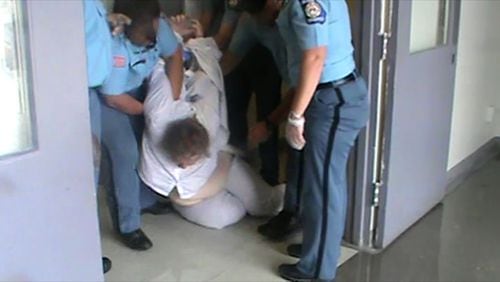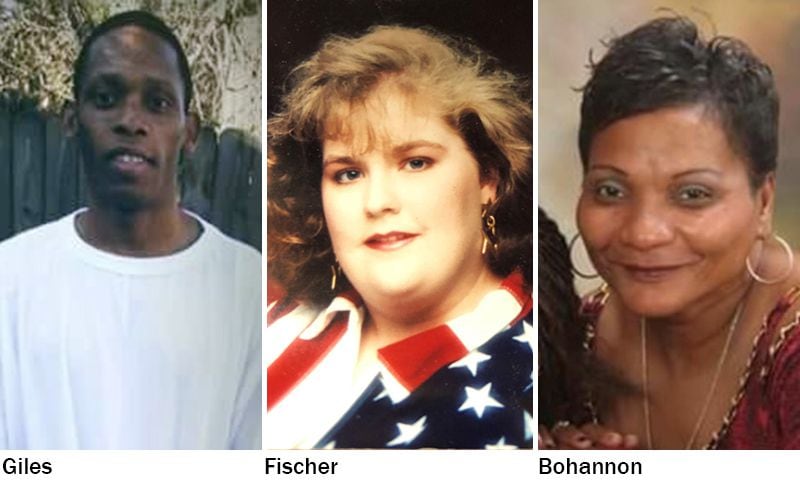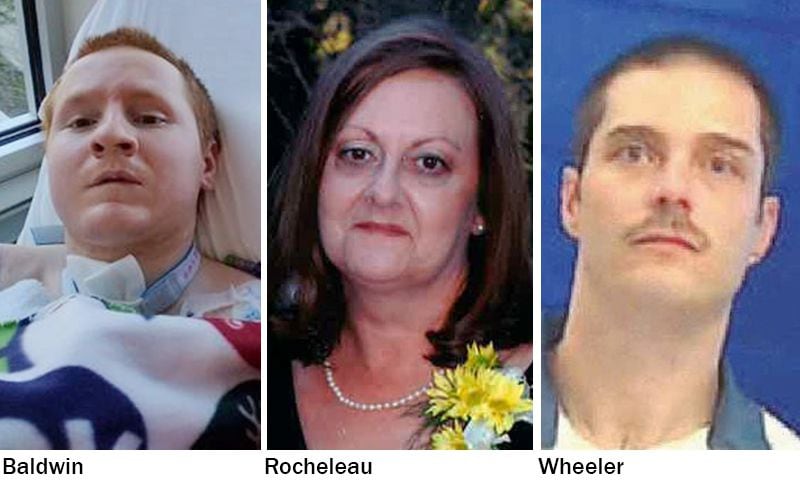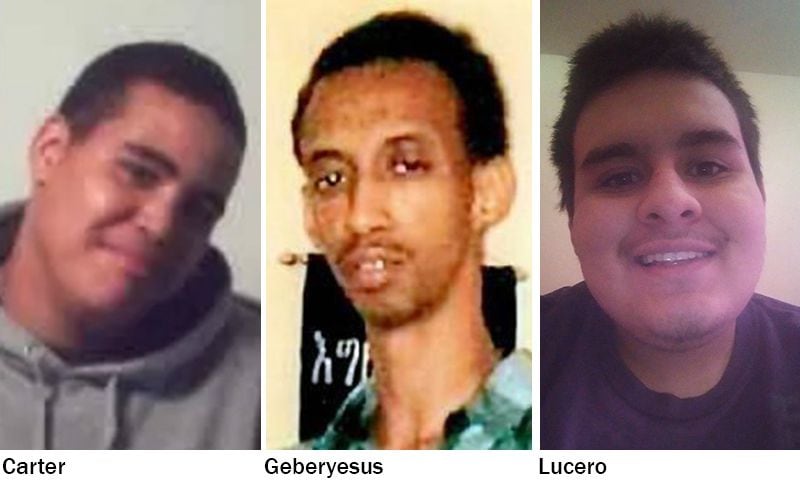Since 2018, the state has paid out nearly $20 million to settle claims involving death or injury to prisoners in facilities operated by the Georgia Department of Corrections.
The cases involve a range of allegations, including improper medical care, the failure to protect prisoners from violent attacks and failure to monitor and care for prisoners who died by suicide in their cells.
Attorneys who have represented family members said the deaths are a symptom of widespread problems in Georgia’s prison system.
“The state has to take a long, hard look at just a complete overhaul of the correctional system and look at everything it can do to make it safer, to actually fulfill the purpose of a prison,” said Darl H. Champion, an attorney who represented the family of Agnes Bohannon, whose family alleged she complained for days of illness but didn’t get adequate care and died days later. The state paid $1.5 million to settle the case.
The problems of violence, understaffing, lack of rehabilitation and poor medical care are all tied together, Champion said. If prisons are understaffed and violent, he said, those serving time aren’t reformed, recruiting qualified staff becomes more difficult and healthcare providers simply don’t want to take jobs in prisons, so health care suffers, too.
“If you compartmentalize these problems and look at them separately, it’ll never get fixed,” Champion said. “You’ve got to look at the whole thing and see how it’s all related.”
The AJC obtained data on payments reported as settlements of prison-related cases by the Georgia Department of Administrative Services. The state agency administers a self-funded liability insurance program that covers state entities and employees. In some cases, the AJC learned of additional amounts included in a settlement on top of what the state’s insurance program paid, and the AJC included that amount in the settlement total listed below.
These are the largest settlements reported and the year the cases were finalized, according to DOAS records. The amounts do not include legal fees and other expenses incurred by the state.
Credit: Contributed
Credit: Contributed
$5 million* (2023): Thomas Henry Giles was left for hours in his smoke-filled prison cell at Augusta State Medical Prison in October 2020, though officers moved inmates of nearby cells. He died of smoke inhalation, and the GBI medical examiner ruled his death a homicide.
$2.2 million* (2021): A young transgender inmate in solitary confinement took her own life in December 2017 after her threats of suicide were ignored at Valdosta State Prison. The prisoner, Jenna Mitchell, suffered from schizophrenia, bipolar disorder and other mental health issues, according to her family.
$1.5 million (2023): Agnes Bohannon complained for days of cardiac and respiratory distress after being transferred to Lee Arrendale State Prison but her family said she didn’t receive adequate evaluation or treatment. She died of cardiovascular disease in September 2019.
$1.5 million (2018): Mollianne Fischer was left in a vegetative state in May 2014 after she failed to receive adequate medical care at Pulaski State Prison.
$1.375 million (2023): Bobby Edward Lee Jr. pleaded for protection at Macon State Prison after officials placed him in a cell with another prisoner who had previously killed a fellow parolee. No officers responded until after Lee was strangled to death in July 2020.
Credit: Contributed
Credit: Contributed
$1 million (2019): Nicholas Baldwin, a teenager who twice before had attempted suicide, wasn’t provided recommended emergency psychiatric care and used a bedsheet to hang himself in November 2014. He survived the suicide attempt but was left permanently disabled. In addition to the $1 million state payout, the prison’s private medical provider also reached a confidential settlement. (Nicolas Baldwin, November 2014)
$925,000 (2018): Bonnie Rocheleau, who had long suffered from COPD, failed to get adequate care at Pulaski State Prison when she developed pneumonia, leading to her death in March 2015.
$750,000 (2023): Brandon Peters suffered for days from severe belly pain, fever and bowel problems then died in his cell at Georgia State Prison in November 2020. A claim filed with the state alleged that officials had failed to intervene and provide proper medical care to the gravely ill man.
$750,000 (2023): After repeated attacks by his cellmate, Coty Silvers was brutally tortured and murdered in May 2020, according to the law firm representing his survivors. The claim filed with the state said that Silvers hadn’t been provided with appropriate medical care after a fight and died of suffocation.
$750,000 (2021): Despite his previous history of self-harm, a claim alleged that officials at Wilcox State Prison failed to recognize James Wheeler’s mental health disease and placed him in solitary confinement. He was found hanging in his cell in October 2017.
Credit: Contributed
Credit: Contributed
$700,000 (2023): After suffering for months from uncontrolled diabetes at Dooly State Prison, James Yarbrough died in August 2020 of ketoacidosis, in a case alleging medical malpractice.
$700,000 (2021): After multiple previous suicide attempts, Demitri Carter took his own life at Phillips State Prison in October 2017.
$700,000 (2018): A woman at Lee Arrendale State Prison died in May 2015 after allegedly failing to receive adequate medical treatment. Her death certificate shows that 57-year-old Avis McNeil died of atherosclerotic cardiovascular disease.
$650,000 (2021): At Georgia Diagnostic and Classification Prison, Charles Lee Broady Jr. asked to be moved to another dorm because gang members in his dorm were threatening to kill him. Shortly after he was moved, six gang members with razor blades slashed his face, nearly killing him, according to a lawsuit he filed. While that suit was pending, he was moved to Hays State Prison. In an isolated area of the prison, he reportedly attempted suicide and died in November 2017. The claim his survivors filed alleged medical malpractice.
$600,000 (2022): Hancock State Prison inmate Amanuel Selassie Geberyesus, serving a one-year sentence on a burglary conviction, was placed in solitary confinement after being repeatedly attacked by gang members. He told counselors that he had thoughts of suicide but contrary to a counselor’s advice prison officials placed him in in a regular cell, where he hung himself in March 2019.
$550,000 (2019): Jimmy Lucero, age 19, was suffering from hallucinations and deteriorating mental health but wasn’t provided mental health services at Wilcox State Prison, a lawsuit alleged. After he stopped eating, he was transferred to Augusta State Medical Prison. There, after being placed in solitary confinement and not receiving required medical checks, he fell into a catatonic state and starved, the lawsuit said. His death certificate shows he died in June 2016 of a pulmonary embolism due to deep vein thrombosis. That can be caused by prolonged fasting.
* These cases include the amount paid by the Department of Administrative Services and additional amounts from other sources that were part of the settlement.












